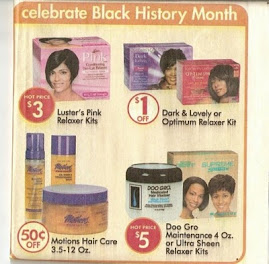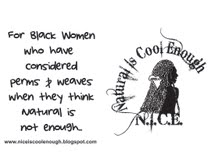As my second in the series of three Summer Hair Naturally pieces, the focus is color! During the summer, many of us get free spirited, a bit more relaxed and adventurous. So, the result for our hair is often color...sometimes just a tinge and sometimes very vibrant! To that end, I will share with you a natural wonder for coloring our hair and that is Henna. The first step in this discussion is to define Henna. Henna is a shrub, Lawsonia inernis. It has fragrant redish flowers; The dried leaves of this plant is often used for hair coloring. Below are pictures of Henna.
So the process of using Henna is not complicated at all. It's wonderful for natural hair as a dye for a number of reasons. Henna serves to color your hair and is also a natural conditioner. Whenever I color my hair, I go to a health food store and I buy natural henna. I will not indicate the brand, as this is not an advertisment but merely information. Henna has a consistency that feels like dirt. So in following the instructions, what is generally needed is a plastic or wooden bowl and spoon, hot water, gloves for your hands (so they don't get stained) and a plastic hair cap. You add hot (almost boiling) water to your henna (following the measurements in the information packet for your henna product), along with apple cider vineger, then mix until the henna is a creamy consistency and then apply it to your hair. Parting your hair in sections is the best way to go or separating your locks into groups. You want to saturate your hair with the henna. It is a very messy process, so you want to cover your shoulders with a towel that you're not fond of or some other type of covering or old t-shirt. Leave the henna in your hair for about an hour (or the timeframe indicated in your henna package information package). Then rinse your hair thoroughly (in the shower if possible because, as mentioned above, it is a bit of a messy process). You want to rinse your hair very thoroughly so take your time because your hair will feel gritty it as you are rinsing it. I usually rinse until the water runs clear and no color transfers to my hands as I remove my gloves once my hair is initially rinsed. I use my shower head to rinse off any henna in the shower. Below are a couple of videos and photos to give you more insight into the process. The bottom line is that Henna to add a little color for the summer is another fun way for the N.I.C.E. experience. Enjoy!

















2 comments:
I have come across quite a number of methods to treating natural hair with henna - from using hot water, to mixing the powder with various oils and aloe vera. But I've loved the experimentation! The only thing I've wondered is why henna isn't quite effective as a dye. No matter how RED the henna powder, it does not seem to so much as tint my hair sometimes. However when I once tried it on my sister, who has relaxed hair, her hair dyed into a lovely auburn red.
Perhaps it has to do with natural hair cuticles being closed, as opposed to our relaxed sisters whose cuticles are opened due to the chemicals used to treat their hair. Not sure...
Yes. Mixing the henna with oils (for example, coconut oil) and other natural oils/aloe vera have many wonderful effects. The synthetic dyes are perhaps more effective because of the chemicals use that may have a greater "coloring" impact but may bring with them, other problems as they are not natural. The other reason that your henna may not work is perhaps the quality of the henna product used. Some companies claim that their product is 100% henna although it may not come from the leaves, which is where the essence of the color is for dying hair. The bark, root, etc. of the plant is not useful for coloring hair. Also, you may want to try to avoid compound henna which may have other products ground up into the henna. As for why it works on your sisters hair and not yours, given that her hair is relaxed, may be due to the combination of the chemicals already in her hair, combined with the henna which may cause a different effect. The actual color of your natural hair also has some bearing on the effect. The hair color achieved from henna is not only different from person to person, hair color to hair color but also strand to strand, hence the varying highlights. I have provided a link for an article that you may find interesting. It is entitled: "Henna for Hair, How To" It is a PDF file and can be found at: http://www.hennaforhair.com/freebooks/hennaforhair.pdf
Hope this helps! It is not a definitive answer but a start...
Post a Comment